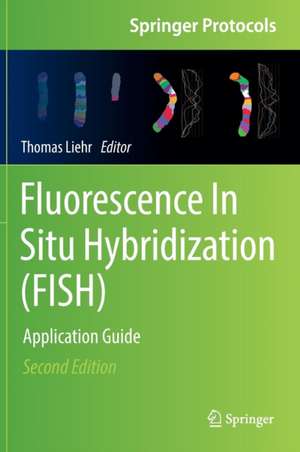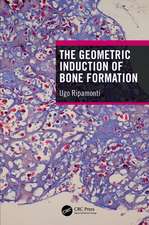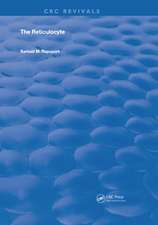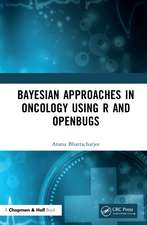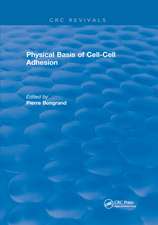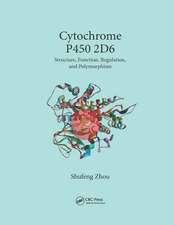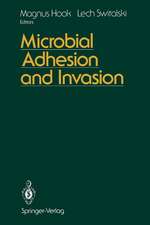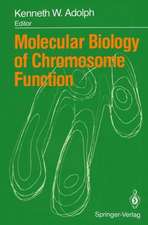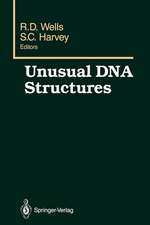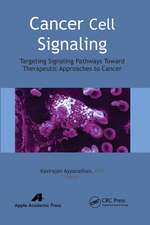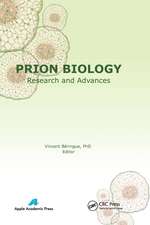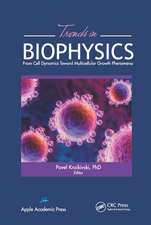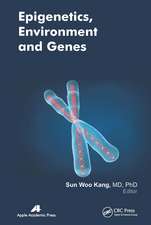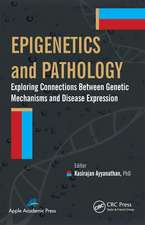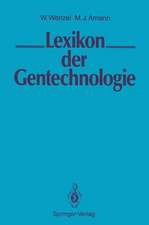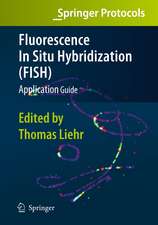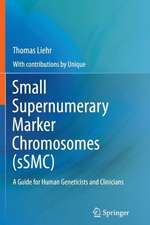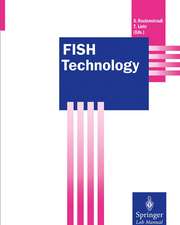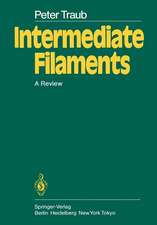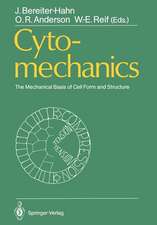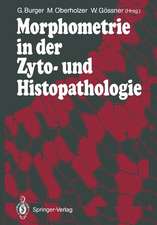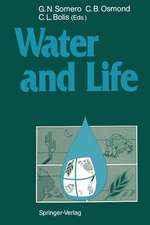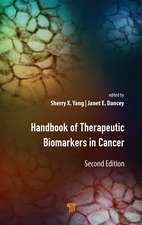Fluorescence In Situ Hybridization (FISH): Application Guide: Springer Protocols Handbooks
Editat de Thomas Liehren Limba Engleză Hardback – 27 oct 2016
This well-received application guide provides essential protocols for beginning FISHers and FISH experts alike working inthe fields of human genetics, microbiology, animal and plant sciences.
| Toate formatele și edițiile | Preț | Express |
|---|---|---|
| Paperback (1) | 912.45 lei 6-8 săpt. | |
| Springer Berlin, Heidelberg – 22 apr 2018 | 912.45 lei 6-8 săpt. | |
| Hardback (1) | 1029.13 lei 6-8 săpt. | |
| Springer Berlin, Heidelberg – 27 oct 2016 | 1029.13 lei 6-8 săpt. |
Din seria Springer Protocols Handbooks
- 18%
 Preț: 782.42 lei
Preț: 782.42 lei - 5%
 Preț: 1817.13 lei
Preț: 1817.13 lei - 18%
 Preț: 1120.18 lei
Preț: 1120.18 lei -
 Preț: 403.91 lei
Preț: 403.91 lei - 15%
 Preț: 662.30 lei
Preț: 662.30 lei - 18%
 Preț: 1855.11 lei
Preț: 1855.11 lei - 18%
 Preț: 1918.09 lei
Preț: 1918.09 lei - 18%
 Preț: 896.08 lei
Preț: 896.08 lei - 15%
 Preț: 644.82 lei
Preț: 644.82 lei - 20%
 Preț: 593.48 lei
Preț: 593.48 lei - 18%
 Preț: 966.27 lei
Preț: 966.27 lei - 5%
 Preț: 2329.29 lei
Preț: 2329.29 lei - 18%
 Preț: 952.09 lei
Preț: 952.09 lei - 5%
 Preț: 737.11 lei
Preț: 737.11 lei - 15%
 Preț: 648.24 lei
Preț: 648.24 lei - 18%
 Preț: 984.44 lei
Preț: 984.44 lei - 18%
 Preț: 977.34 lei
Preț: 977.34 lei - 18%
 Preț: 1674.20 lei
Preț: 1674.20 lei - 18%
 Preț: 1841.06 lei
Preț: 1841.06 lei - 18%
 Preț: 970.87 lei
Preț: 970.87 lei - 18%
 Preț: 1588.19 lei
Preț: 1588.19 lei - 5%
 Preț: 677.07 lei
Preț: 677.07 lei - 18%
 Preț: 1250.74 lei
Preț: 1250.74 lei - 5%
 Preț: 723.78 lei
Preț: 723.78 lei - 18%
 Preț: 900.18 lei
Preț: 900.18 lei - 18%
 Preț: 800.55 lei
Preț: 800.55 lei - 15%
 Preț: 645.60 lei
Preț: 645.60 lei - 5%
 Preț: 1487.03 lei
Preț: 1487.03 lei - 15%
 Preț: 645.47 lei
Preț: 645.47 lei
Preț: 1029.13 lei
Preț vechi: 1255.03 lei
-18% Nou
Puncte Express: 1544
Preț estimativ în valută:
196.95€ • 213.86$ • 165.44£
196.95€ • 213.86$ • 165.44£
Carte tipărită la comandă
Livrare economică 22 aprilie-06 mai
Preluare comenzi: 021 569.72.76
Specificații
ISBN-13: 9783662529577
ISBN-10: 3662529572
Pagini: 453
Ilustrații: XIII, 606 p.
Dimensiuni: 178 x 254 x 33 mm
Greutate: 1.28 kg
Ediția:2nd ed. 2017
Editura: Springer Berlin, Heidelberg
Colecția Springer
Seria Springer Protocols Handbooks
Locul publicării:Berlin, Heidelberg, Germany
ISBN-10: 3662529572
Pagini: 453
Ilustrații: XIII, 606 p.
Dimensiuni: 178 x 254 x 33 mm
Greutate: 1.28 kg
Ediția:2nd ed. 2017
Editura: Springer Berlin, Heidelberg
Colecția Springer
Seria Springer Protocols Handbooks
Locul publicării:Berlin, Heidelberg, Germany
Cuprins
Part I Required Equipment and Probes for FISH Procedures.- Part II FISH Procedure.- Part III Material Suited for FISH Applications in Humans.- Part IV Multicolor-FISH-Probe Sets (mFISH) and Immunostaining.- Part V Interphase FISH.- Part VI Applications of FISH in Zoology, Botany and Microbiology.- Part VII Comparative Genomic Hybridization (CGH) and Array CGH.
Notă biografică
Dr. Thomas Liehr, a biologist (diploma, PhD and postdoctoral degree in human genetics), has been working in molecular cytogenetics since 1991. He has been head of the molecular cytogenetic group at the Institute of Human Genetics, Jena, Germany since 1998; before he was a PhD fellow of the Herbert Quandt Stiftung der VARTA-AG at the Institute of Human Genetics, Erlangen, Germany. Working intensively in diagnostics, since 2002 he has been a ‘specialist in human genetics diagnostics’ (FHG = Fachhumangenetiker), a title awarded by the German Society of Human Genetics (GfH), and a European registered Clinical Laboratory Geneticist (ErCLG) since 2015. Dr. Liehr’s research fields include clinical genetics, leukemia cytogenetics and the (3D) structures of the interphase and the human chromosomes, as well as breakpoint characterization. The results of his research have been published in 5 books, >50 book chapters, >550 peer-reviewed papers, and ~800 abstracts. His particular expertiseis molecular cytogenetics including chromosomal heteromorphisms, small supernumerary marker chromosomes (sSMC) and uniparental disomy, fields for which he has collected all available literature and made it freely available on the Internet. Further, Dr. Liehr has multiple longstanding international collaborations with many scientists around the world including researchers in e.g. Armenia, Croatia, India, Morocco, Russia, Serbia, Thailand, and Brazil.
Textul de pe ultima copertă
This manual offers detailed protocols for fluorescence in situ hybridization (FISH) and comparative genomic hybridization approaches, which have been successfully used to study various aspects of genomic behavior and alterations. Methods using different probe and cell types, tissues and organisms, such as mammalians, fish, amphibians (including lampbrush-chromosomes), insects, plants and microorganisms are described in 57 chapters. In addition to multicolor FISH procedures and special applications such as the characterization of marker chromosomes, breakpoints, cryptic aberrations, nuclear architectures and epigenetic changes, as well as comparative genomic hybridization studies, this 2nd edition describes how FISH can be combined with other techniques. The latter include immunostaining, electron microscopy, single cell electrophoresis and microdissection.
This well-received application guide provides essential protocols for beginning FISHers and FISH experts alike working inthe fields of human genetics, microbiology, animal and plant sciences.
This well-received application guide provides essential protocols for beginning FISHers and FISH experts alike working inthe fields of human genetics, microbiology, animal and plant sciences.
Caracteristici
Offers readily reproducible, step-by-step laboratory methods Features easy-to-follow recipes to promote successful results Includes sections on interpreting and evaluating results, as well as troubleshooting advice for each protocol Includes brilliant color photos showing the results of fluorescence in situ hybridization on various tissues Includes supplementary material: sn.pub/extras
